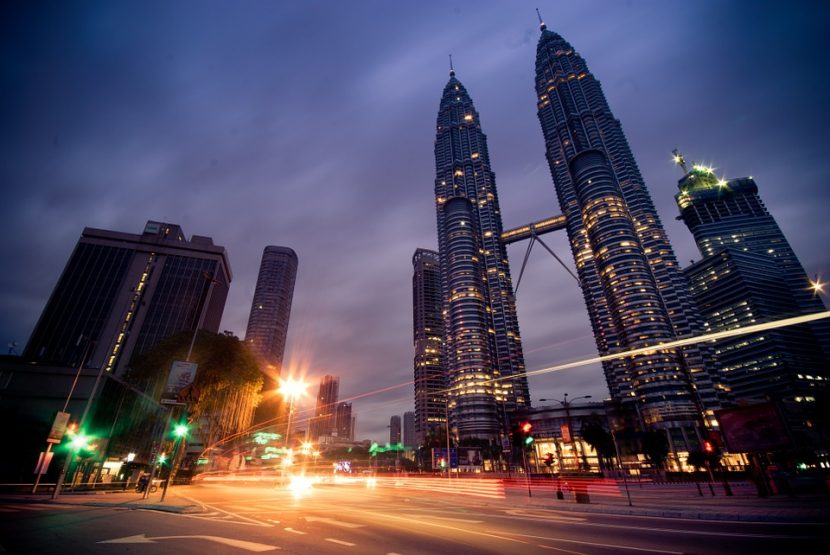PROPERTY GURU. 11TH JULY: The Sultan of Johor believes the Malaysia My Second Home (MM2H) programme needs improvement in terms of policy, benefits and incentives to ensure that it will not burden applicants.
Meanwhile, the state government of Perak has increased the size of its Malay reserve land by 2,409.28ha, which includes high-value government land.
1. Johor Sultan urges government to improve MM2H programme
The Sultan of Johor believes the Malaysia My Second Home (MM2H) programme needs improvement in terms of policy, benefits and incentives to ensure that it will not burden applicants.
Sultan Ibrahim Sultan Iskandar underscored that such enhancements are crucial in making Malaysia one of the top choice destinations for long-term foreign residents.
Meanwhile, Tourism, Arts and Culture Minister Tiong King Sing, which was granted an audience by Sultan Ibrahim, said the Johor ruler has shared various ideas on how to improve the MM2H programme, which he believes could be implemented to enhance Malaysia’s tourism sector.
“I will discuss His Majesty’s insights and advice to improve the MM2H programme with the home ministry and industry players,” he said, adding that the result of such discussions will be presented to the Cabinet in August.
2. Perak adds 2,409ha to Malay reserve land
The state government of Perak has increased the size of its Malay reserve land by 2,409.28ha, which includes high-value government land, said Menteri Besar Datuk Seri Saarani Mohamad.
With this, Perak now has 955,587.8ha of Malay reserve land, of which some have development potential.
Saarani shared that the decision during the state government executive council meeting in a bid to ensure that 50% of the state’s land is Malay reserve land.
The additional land included those in Pasir Panjang Hulu in Mukim Pasir Panjang Hulu (183ha) and Kampung Makmur in Mukim Kampong Gajah, Perak Tengah (1,102ha).
It also involved areas in Sungai Kroh, Mukim Chenderiang in Batang Padang (476.3ha) and Mambang Di Awan (233.87ha). Over in Kota Baharu, areas included are in Slim Hills di Mukim Slim in Muallim (21.25ha) and Mukim Teja in Kampar (395.36ha).
3. Prime Minister urged to revise public land rules in Klang Valley
Advocacy group Selamatkan Kuala Lumpur has urged the Prime Minister to make regulatory revisions to protect public lands within Kuala Lumpur and the Klang Valley.
The group wants Rule 7 of the Planning (Development) Rules 1970 tweaked so that public consultation could start early for any planned development as well as make it easier to identify projects which do not align with public interests.
The group is also calling for better management of new reservations and gazetting revocations.
This comes after group members noticed the failure of the attorney-general’s chambers to issue gazettes even after revocations were finalised. The group also found it hard to track legal notifications and find precise locations of land plots.
The group also want the government to consider public land’s intrinsic value, rather than just the price. It noted that property prices could also be determined by the projected quality of life, public safety and facilities.
“Seen in this context, these lands can be so valuable as to be considered ‘priceless’,” it added.
4. Offer developers land at a discount
The government has been urged to collaborate with key industry players to judiciously define “affordable housing” and its cost across various geographic locations.
“Such a pricing calibration exercise would not be simple or easy to implement. Nevertheless, we implore the authority to seriously consider fine-tuning such a pricing mechanism so as to reduce the current inequitable way of cross-subsidy, which has the effect of pushing up prices of other housing types across the board,” said Samuel Tan, Executive Director of KGV International Property Consultants (M) Sdn Bhd.
Tan noted that cross-subsidising such a control-priced product made affordable housing a “burden” for developers, making them reluctant to develop such products or delay construction.
With this, Tan called on local government to offer land parcels at a discount to encourage developers to build such housing units and boost affordability.
He also suggested forming a central agency that will oversee affordable housing in the country, much like Singapore’s Housing and Development Board (HDB).
“We probably do not need to copy its policies and methodologies wholesale. We should at least learn and try to modify and tweak the HDB model to suit our society, then implement it in our homeland,” added Tan.
5. Mah Sing to develop fourth project in Kepong
Mah Sing Group Bhd is set to develop its fourth project in Kepong, known as M Zenya, following the success of M Luna and Lakeville Residence.
With a gross development value (GDV) of RM500 million, M Zenya will occupy a 4.888-acre site near Keponggi Square and Metropolitan Lake.
“This is a particularly well-suited development as it will be able to tap into the catalytic effects of Keponggi Square. Given M Zenya’s proximity to upcoming retail convenience, we will primarily be offering service apartments with a variety of amenities to appeal to residents, as well as certain commercial and retail lots to supplement residential needs,” said Tan Sri Leong Hoy Kum, Mah Sing Founder and Group Managing Director.
Preliminary designs showed that M Zenya will be a mixed development, featuring commercial or retail lots as well as two- to four-bedroom apartment units, with sizes ranging between 718 sq ft and 1,067 sq ft.
The suggested starting price for the units is RM420,000, said Leong.
The project is expected to be registered in the second half of 2023.


